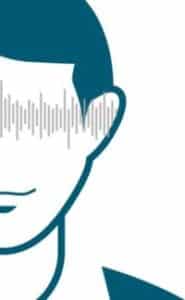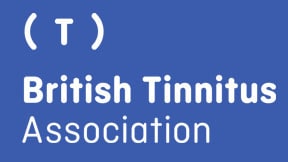What is Tinnitus

Tinnitus can be defined as- “ringing or buzzing in the ears”. It can also be described as a hissing, clicking or roaring sound. Some have even reported it sounded like music being played in the distance.
It happens when we hear a sound that does not come from any source outside the body. Only the person who has tinnitus can hear it.
Tinnitus and hearing loss typically are co-present, but not always. You can experience it with no hearing loss at all.
It can present in both or just one ear and can vary in pitch and severity. Often most noticeable at night or during periods of quiet where no competing noise is present to mask it.
It can be temporary, or it can be chronic and persistent.
Tinnitus is very common
It affects approximately six million people in the UK at present. Around ten percent of the UK’s population! Approximately half find tinnitus moderately or severely distressing.
Complaints of intrusiveness, emotional stress, insomnia, poor work performance and difficulties with concentration are not uncommon.
Tinnitus often comes hand in hand with a hearing loss, although there can be other causes too. For instance excessive wax in the ear canal.
Fast Facts on Tinnitus

- Most cases are due to damage to the cochlea, or hearing nerve.
- Certain medications can cause or worsen tinnitus, for example, aspirin, particularly in large doses.
- People with it may be over-sensitive to loud noise.
- Most people learn to live it, but some who find it particularly difficult to live with seek extra help to cope.
An additional useful resource for information can be found at the British Tinnitus Association website – www.tinnitus.org.uk
What causes tinnitus?
Common causes are excessive or cumulative noise exposure at work. Also playing music too loud in headphones, attending rock concerts, shooting and explosions.
Smoking leads to an increased risk factor, as is the general ageing process and its typical accompanying hearing loss. Certain medicines have an oto toxic effect on the hearing system, also ear infections can be a cause.
Tinnitus can occasionally indicate a serious underlying medical condition, particularly if irregular, of sudden onset, one sided or pulsatile in nature. If you are worried, best run things by your doctor.
Is there a cure?
There is no cure, but there are ways of managing tinnitus. Most people with chronic tinnitus adjust to the ringing over time, but 1 in 5 will find it disturbing or debilitating.
Ideally it’s best just to try to become accustomed to tinnitus and learn to tune it out. Ignoring it rather than focusing on it can bring relief.
Hearing aids
Many people find that wearing a hearing aid to help with an accompanying hearing loss really helps distract them from the problem. It doesn’t always work that way, you can’t rely on hearing aids to relieve the effects, but it often helps, and when it does you can count it as a pleasant side benefit!
A lot of todays hearing aids have tinnitus masking capabilities built into them nowadays. Other things that people find can help to manage its effects are;
Sound therapy
Using other sounds to mask the perception of tinnitus. Low level noise in the background, for instance a radio or TV on low, a small water feature or even a specific masker device playing white noise can help.
The choice of sound should be ideally pleasant to the individual. White noise isn’t particularly so…. music on the radio in the background is generally much nicer! Masking the unpleasant tinnitus with other nicer sounds offers temporary relief. Of course the awareness returns once the sound therapy is taken away / turned off.
Tinnitus retraining therapy (TRT)
Involves retraining the auditory system to accept the abnormal sounds of tinnitus as natural rather than disruptive. Ongoing counseling sessions can help people cope with it.
Other options
Some say a change of diet ie reduced salt or coffee, generally reducing stress levels and some herbal remedies such as Ginkgo Biloba can help.
However some people who find it is still causing them distress after trying all the above may require additional help.
